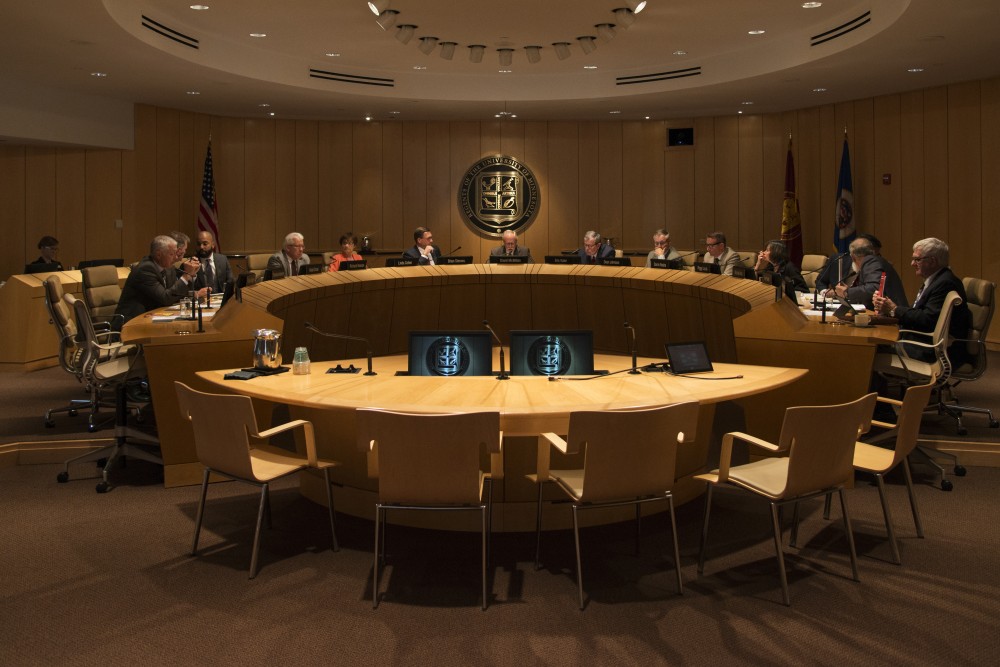A vast majority of candidates considered for the University of Minnesota presidential position listed higher education experiences, according to recently obtained candidate information.
The Minnesota Daily obtained information about 67 presidential candidates through a Data Practices Act request received Friday afternoon. The information received includes job history, education and training, veteran status and work availability, among other descriptors. Candidate information, like names, is not public under Minnesota law until the applicant becomes a “finalist.”
Throughout the search process, some regents and faculty voiced a want for candidates from diverse job backgrounds, such as business and politician positions. However, around 70 percent of applicants come from a college or university administration background.
The University announced Friday the Presidential Search Advisory Committee forwarded three candidates to the Board of Regents for consideration. The board will discuss them at a public meeting next Wednesday without naming individual candidates. A candidate will be considered a finalist after the board decides to interview them. If selected as a finalist, the candidate’s name will be made public.
Higher education experiences stand out
Most applicants listed have a background in higher education.
Of the applicant pool, 60 applicants listed job experiences tied to higher education. These include faculty member, part-time faculty member, visiting faculty member and university administration positions.
Fifty-one of the applicants listed college, school or university administrator positions, and 57 of the candidates listed a faculty member position on their applications. The average amount of time in administration positions was about 11 years, with a range from four years to 30 years.
Regent Michael Hsu said while he was not surprised that a majority of the applicants come from higher education and administrative positions, he has been supportive of candidates from non-traditional backgrounds, like politicians and business professionals.
“You’re more likely to find the best candidate if you cast the net as wide as possible. There are people at other institutions who come from non-traditional backgrounds that are very successful,” Hsu said.
Of the total applicant pool, nearly 70 percent of candidates hold a Ph.D. degree. Many other applicants listed other degrees, including four who listed law degrees. All applicants hold some type of degree.
Among the master’s degrees, some listed Master of Business, Master of Science in engineering, Master of Divinity and Master of Public Affairs degrees. Twenty-three listed Bachelor of Science and 35 listed Bachelor of Arts degrees. Five applicants have Master of Business Administration degrees.
Varied work experiences
In addition to University administrators and faculty members, several applicants listed non-higher education experiences.
Five of the applicants were listed as having experience as politicians. Three candidates have known veteran status, and 25 candidates had “unknown” veteran statuses. One veteran applicant listed 25 years of military job experiences.
Additionally, one applicant was listed as an athlete. This applicant has a bachelor’s certificate and listed 24 years of “senior executive” experience.
Regent Steve Sviggum, who sits on the presidential search committee, said he’s pleased with how the search process has gone so far, and hopes all three nominated candidates will be publicly named next week.
Correction: A previous version of this article misstated when a candidate is considered to be a finalist. A candidate is considered a finalist when the Board of Regents decides to interview them.








